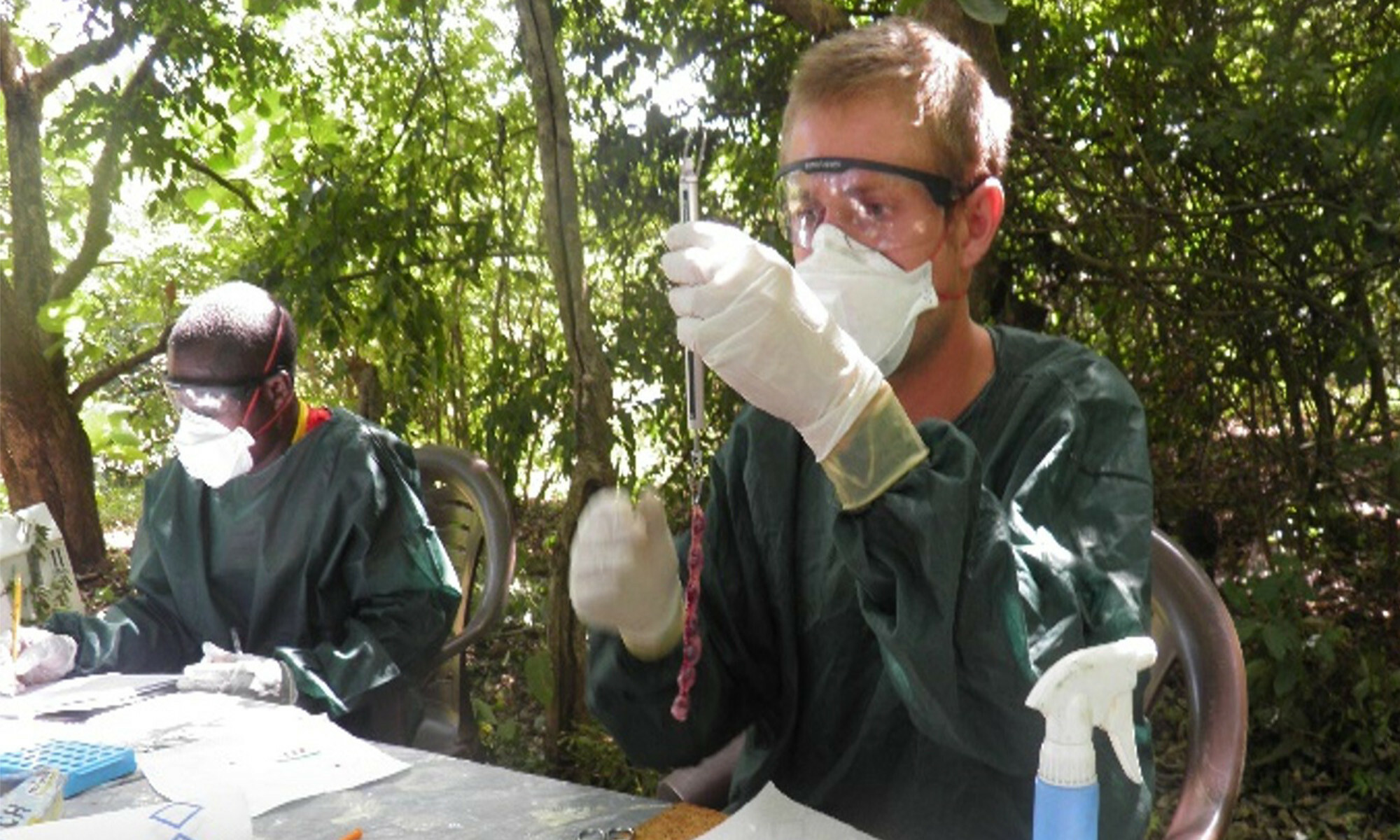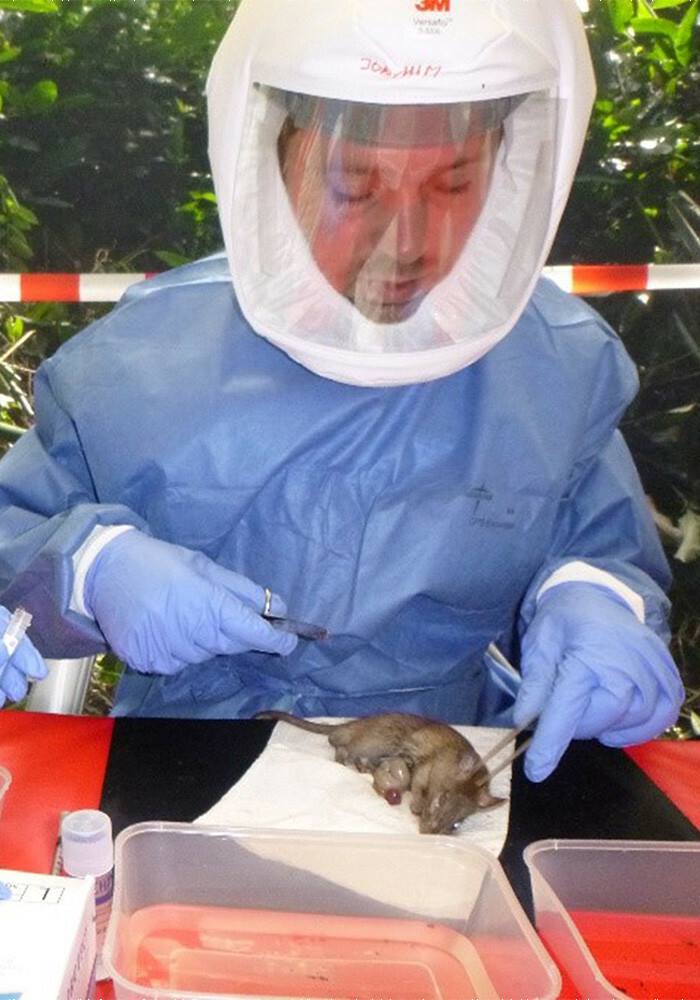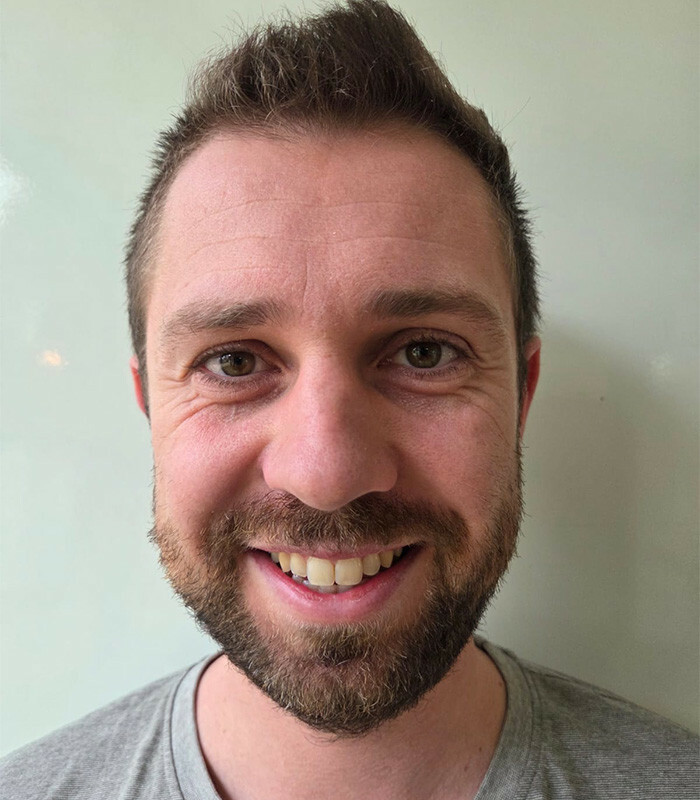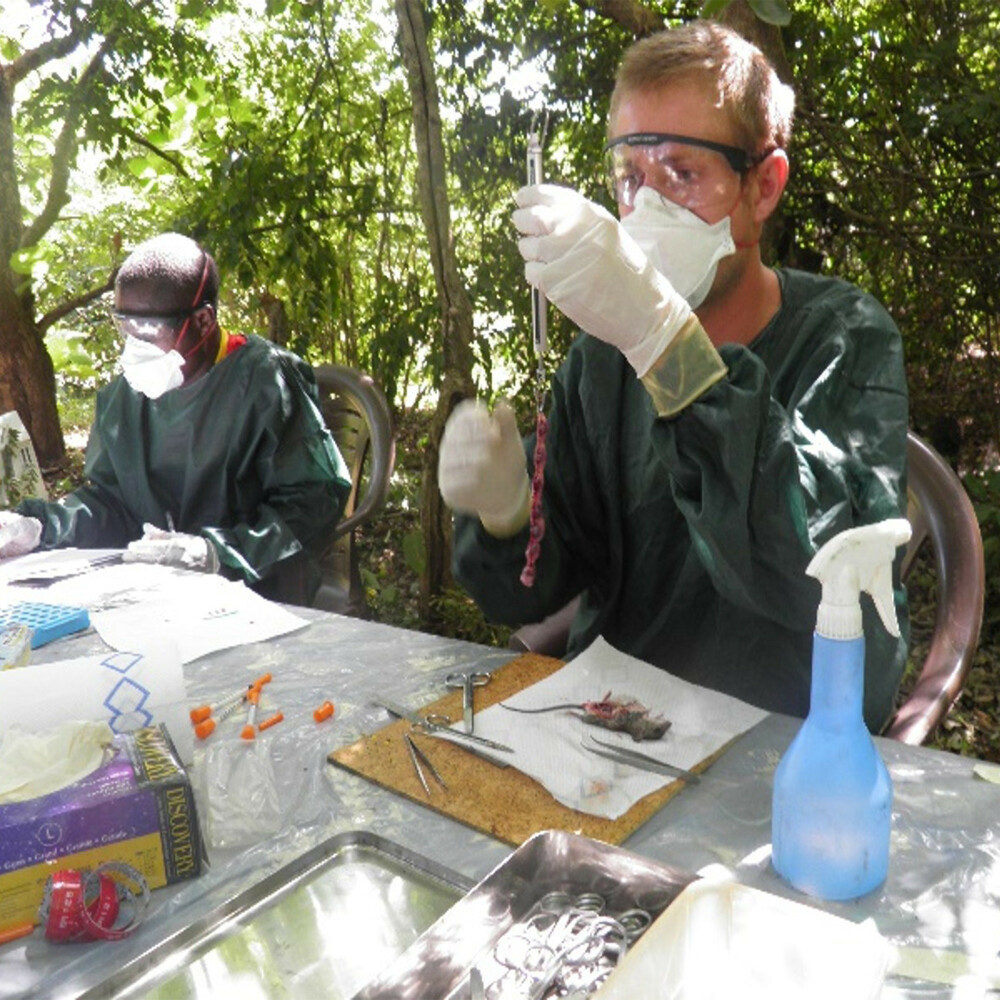"Viruses are extremely flexible and evolve at lightning speed"

What inspired you to become a scientist?
JOACHIM My fascination with nature started in secondary school. I was a member of a nature club in Kalmthout, and a passionate biology teacher gave me that extra push in the right direction (laughs). So, when I decided to study molecular biology, it wasn’t a big surprise to those around me. And yet, for a brief moment, I considered a career in music—I almost chose to go to the conservatory, but in the end, biology won.
As my studies progressed, I became increasingly interested in how infectious diseases affect populations and how viruses spread. That led me to specialise in virus ecology. My master's thesis focused on how (arena)viruses in rodents can jump to humans.

Can you explain what virus ecology is?
JOACHIM Virus ecology studies how viruses spread, survive, and evolve in different ecosystems. One key aspect is host-virus interactions: How viruses infect different species and how certain animals, like bats or rodents, serve as reservoirs. These reservoirs carry the virus without becoming ill themselves. In some cases, humans can also be reservoirs, but often, it is animals such as rodents or birds. The virus can then be transmitted to humans through insect bites or consumption. We study this transmission process—how viruses jump from one species to another.
Environmental factors also play a major role. Climate change, deforestation, and urbanisation can increase the risk of viral outbreaks by bringing animals and humans into closer contact. Some viruses can even survive outside a host, in water, soil, or air, which further influences their spread.
Finally, virus ecology also investigates evolution and adaptation. Viruses mutate rapidly, allowing them to adapt to new hosts or develop resistance to treatments.
Which experiences strengthened your passion for virology?
JOACHIM One of the most defining moments was my bachelor’s internship in Tanzania in 2012, where I experienced fieldwork for the first time. The adventurous aspect of it was a refreshing contrast to lab work.
Another key moment was a course on mathematical modelling for biologists. I learned how simple models could predict epidemic outbreaks and how complex ecological interactions shape virus transmission. That experience motivated me to further explore virus ecology and how we can use this knowledge to better understand and predict disease outbreaks.

Why did you choose ITM?
JOACHIM After completing my PhD, I joined ITM’s Outbreak Research Team (ORT) for two years, right during the COVID-19 pandemic. ORT is a rapid response group for disease outbreaks, and I had the opportunity to work with Kevin Ariën, now head of ITM’s Department of Biomedical Sciences. My role involved developing serological tests for COVID-19.
After that, I worked as a postdoctoral researcher at the University of Antwerp and was also partly affiliated with the Royal Museum for Central Africa. When a vacancy opened up for my current position, I decided to take my chance. ITM has a strong reputation in infectious disease research and tropical medicine and offers a unique opportunity to collaborate across disciplines with experts in virology and public health.
What fascinates you most about viruses?
JOACHIM Viruses are extremely flexible and evolve at lightning speed. Biologically, I find it fascinating how they can adapt to new hosts and environments. For example, some viruses can survive in both mammals and insects, two completely different biological systems, yet they still manage to persist and spread. Understanding how they do this is what drives my research.

What do you enjoy most about your work?
JOACHIM It’s a mix of things. Viruses have an enormous impact on humanity, and COVID-19 showed us just how disruptive they can be. Knowing that my research contributes to protecting global health is very motivating.
I also love the variety in my work. The combination of fieldwork in remote areas, laboratory research, and data analysis creates a great balance between adventure and the more ‘nerdy’ aspects like in-depth investigation (laughs). Collaborating with experts from different disciplines is also incredibly enriching.
What are you currently working on at ITM?
JOACHIM I’m involved in several projects focusing on the ecology and epidemiology of viruses. One of them investigates arenaviruses, which are often carried by rodents. An example is Lassa virus, which circulates in West Africa and can cause severe illness, deafness, and pregnancy complications. We’re studying how this virus spills over from rodents to humans and what control measures might be effective.
We are also developing antibody tests for mpox. These tests are crucial not only for vaccine research but also for identifying the animal reservoir of mpox, which remains unknown.
"Viruses are extremely flexible and evolve at lightning speed. Some viruses can survive in both mammals and insects, two completely different biological systems, yet they still manage to persist and spread. Understanding how they do this is what drives my research."
Joachim Mariën
Professor Virus Ecology
Why haven’t we found the reservoir for mpox yet?
JOACHIM Most likely because the animals are asymptomatic carriers—they show no signs of infection. The virus may remain hidden in their bodies and only activate under stress, meaning there’s only a short window of detectability.
That makes it very difficult: we need to catch the right animal at the right time and test it while the virus is active. This element of chance is why, for some diseases, we still don’t know which animals are the primary reservoirs. Currently, squirrels are being studied as potential reservoirs for mpox.
Do you collaborate with international teams or other departments at ITM?
JOACHIM Yes, collaboration is essential in this field. I work with international research groups, including the University of Idaho (USA), Bernhard Nocht Institute (Germany), Institut de Recherche pour le Développement (France), Sokoine University of Agriculture (Tanzania), and the University of Kisangani (DR Congo). I frequently travel to Tanzania, DR Congo, and Guinea for fieldwork and research collaborations.
Within ITM, I work closely with teams focusing on molecular diagnostics and virus transmission.
How does your work contribute to ITM’s mission?
JOACHIM My research helps us better understand how viruses behave in natural ecosystems and how they spill over from animals to humans. This knowledge directly supports ITM’s mission to combat infectious diseases and prevent outbreaks, particularly in tropical and subtropical regions. But of course, these insights are relevant far beyond those areas as well.
What do you hope to achieve in the coming years?
JOACHIM I want to develop new methods for detecting viruses in animal reservoirs and improve our understanding of how environmental and host factors influence transmission. I also aim to contribute to mathematical models that help predict the risks of future outbreaks.
What role do new technologies, such as artificial intelligence (AI) and genomics, play in your research?
JOACHIM Genomics is already transforming how we identify and characterise viruses. Together with colleagues, we are developing a method to efficiently extract viral material from animal samples using CRISPR-Cas enzymes.
AI, on the other hand, can help us analyse large datasets, for example, by predicting virus spread based on environmental and host factors. These technologies are powerful tools for improving our ability to understand and prevent disease outbreaks.
Joachim Mariën
Joachim Mariën is a disease ecologist with expertise in rodent- and vector-borne zoonoses. He currently leads the Unit of Virus Ecology at ITM, where he focuses on the ecological and evolutionary drivers of pathogen transmission. He holds a PhD from the University of Antwerp, where he studied the ecology of arenaviruses in Tanzania and Guinea. After his PhD, he joined the ITM Outbreak Research Team, contributing to outbreak investigations and serosurveys for Chikungunya and SARS-CoV-2 in Africa and Belgium. He later held an FWO postdoctoral fellowship at the University of Antwerp and a FED-tWIN fellowship jointly at the Royal Museum for Central Africa and the University of Antwerp.
His research integrates field studies, serology, and mathematical modeling to inform zoonotic disease control strategies. He has coordinated several international One Health projects in Central and West Africa and teaches on infectious disease ecology at the University of Antwerp.
Follow Joachim's research on:
Spread the word! Share this story on









